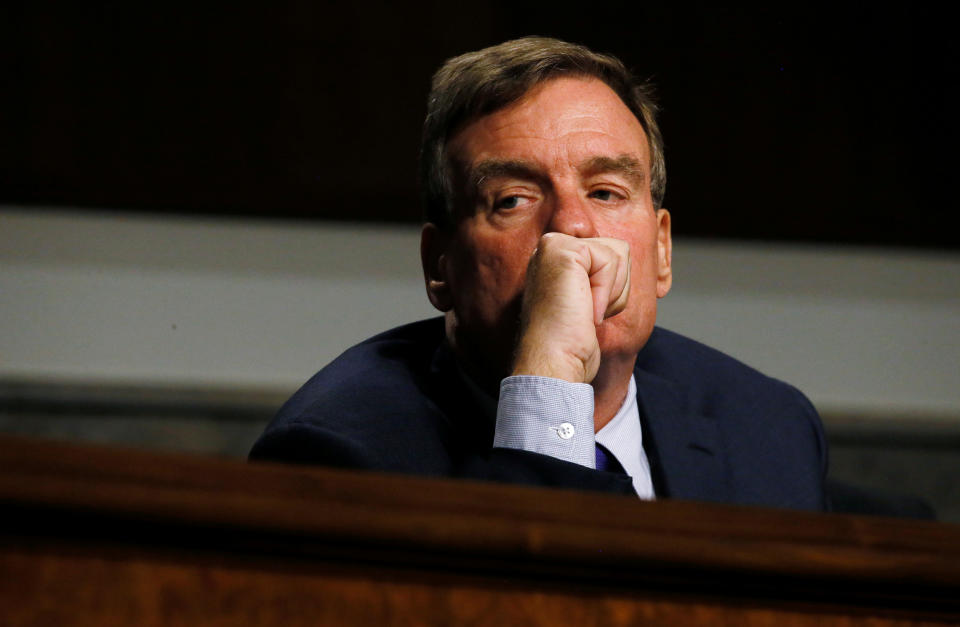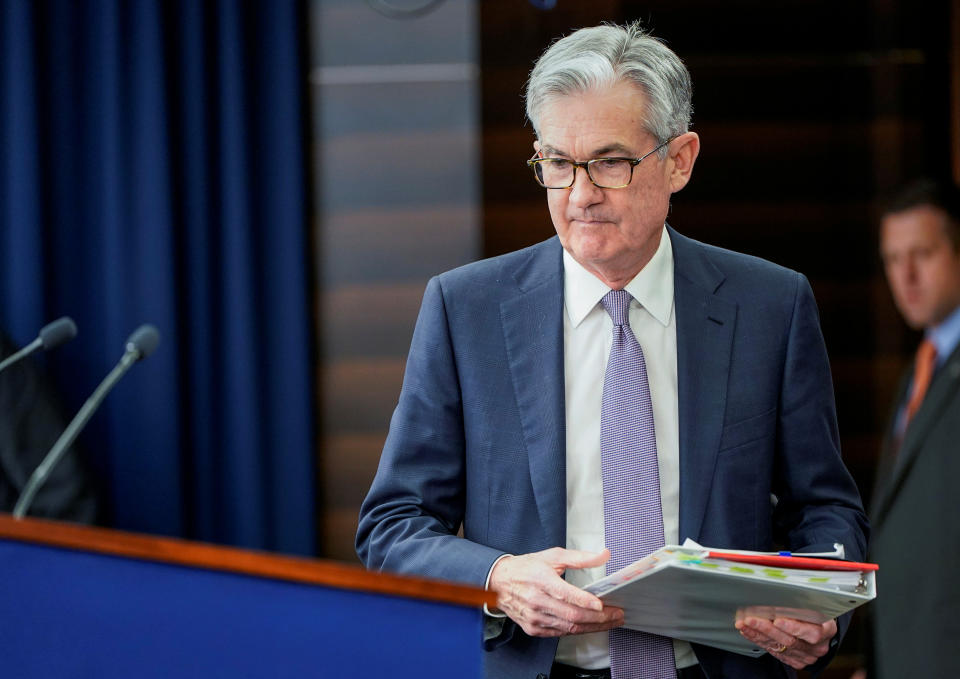Sen. Warner: Fed needs to lend to Main St. amid coronavirus

The Federal Reserve has launched a number of facilities to supply liquidity to banks and broker-dealers, but Congress may call on the central bank to directly lend money to small and medium businesses most impacted by the novel coronavirus outbreak.
On Tuesday, Sen. Mark Warner (D-Va.) called on Congress to set up a joint U.S. Treasury-Fed facility that would provide federally-guaranteed loans to Main Street businesses through the crisis.
“If we do not take action immediately, thousands of American businesses and millions of their employees are at enormous risk,” Warner said.
The facility would be backed by up to $1 trillion in federal financing, and would include “simple terms and underwriting requirements” that Warner hopes will have a higher uptake than loans offered by the Small Business Administration.
Warner told Yahoo Finance that he sees a need for the central bank to provide relief to smaller mom-and-pop businesses that do not get their financing from the large banks that have been the direct target of Fed actions over the past few weeks. The Fed has opened up facilities offering liquidity in money markets, commercial paper, and U.S. dollar markets, which small community banks generally do not have access to.
“How can we get liquidity to these businesses in a quick way where we don't have to completely reinvent the wheel?” Warner told Yahoo Finance in an interview.
Bipartisan interest?
As proposed, the business lending facility would include some protection that would require a borrower to commit to keeping their employees on payroll. Warner said he is also considering additional measures that may restrict executive compensation.
Warner emphasized that the loans would include a federal guarantee so that during the crisis, borrowers would have either loan forgiveness or some interest holiday.

“You would have the first dollar loss covered by the Treasury and the balance backed by the Fed,” Warner said.
Although the bill is still being drafted, Warner said he has “broad bipartisan interest” in the idea and is in touch with staff from both the Fed and the Treasury. The Federal Reserve declined to comment on the extent of their contact with Sen. Warner’s office.
Aaron Klein, a policy director of financial regulation and markets at the Brookings Institution, told Yahoo Finance that he likes Warner’s efforts to help small- and medium-size businesses. However, he feels the Fed’s status as the centerpiece of the banking system makes it ill-fit to deliver a direct benefit to Main Street.
“The central bank is a lender of last resort in periods where there is a liquidity panic,” Klein said. “This virus is about the solvency of America’s small- and medium-sized business network.”
Klein said directly helping the employees who are not financially solvent should be the focus of fiscal policy.
Fed limitations
Lawmakers have come into focus as some, such as Boston Fed President Eric Rosengren, float the idea of asking Congress to expand the central bank’s toolkit to battle the crisis.
Rosengren suggested earlier in the month that Congress may want to pass legislation allowing the Fed to directly buy corporate debt, since the central bank is currently limited to only being able to purchase government or government-backed securities.
Warner told Yahoo Finance he wants to “think about that a little bit,” but wants to first prioritize small business labor forces.
“We'll take care of those folks first, and then look at the macroeconomic activities,” Warner said. “We may have to do both because of the crisis.”
Brian Cheung is a reporter covering the Fed, economics, and banking for Yahoo Finance. You can follow him on Twitter @bcheungz.
Federal Reserve reopens crisis-era primary dealer credit facility
Regulator open to allowing non-bank companies to build banking businesses
Fed unleashes commercial paper funding to support non-bank companies
Federal Reserve slashes rates to zero, restarts QE in emergency Sunday announcement
Read the latest financial and business news from Yahoo Finance
Follow Yahoo Finance on Twitter, Facebook, Instagram, Flipboard, SmartNews, LinkedIn, YouTube, and reddit.
